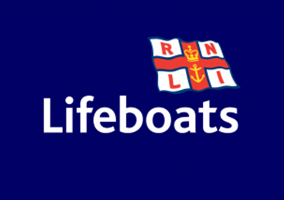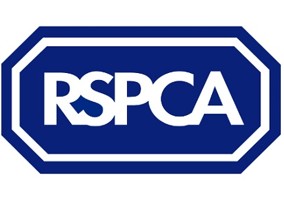The Daily Mail, as it so often does, has got it wrong on charities. This time on the RNLI. Its article on Saturday was a hatchet job, which essentially accused the RNLI of taking a high-handed attitude towards volunteer crew.
The Daily Mail has highlighted several instances where crew have been asked to step down. A pornographic image. Exposing yourself to other crew. Unauthorised people in a lifeboat. It has cast these as nothing more than hijinks and horseplay.
But the RNLI has said it takes a different view of these incidents, saying they are actually serious breaches of its code of conduct. Some could be a joke or - depending on how they were done or who they were done to - they could be serious intimidation and bullying.
It’s fair enough for the RNLI to not have much of a sense of humour here. If you have volunteers going out in treacherous conditions to save lives, you want to be absolutely sure that those individuals will behave sensibly and soberly, and that they can trust and rely on each other. This isn’t something you mess about with.
This is, in essence, a safeguarding issue. Having just heard from all newspapers everywhere that charities need to take safeguarding seriously, it’s a little dispiriting to hear a paper now saying “Not that seriously, obviously. Boys will be boys.” And actually criticising the RNLI for hiring a safeguarding officer.
This newspaper has continually asked for a higher moral standard from charities. They seem to have got it, and now they don’t like it.
So it’s good to see the RNLI push back strongly. Too many charities, faced with poor stories in the papers, have hidden behind a wall of newspeak, uttering platitudes and using the language of a management report. Now the sector is learning. When attacked, respond with passion. Have pride in your decisions and push back. Don’t try to pretend the story doesn’t exist. Share it, condemn it, and ask other to do the same.
The RNLI has also published a long Q&A to it to all its volunteers, and they seem to have responded. Twitter, and the comments section of the Mail, is full of outraged defenders.
This is a real change. We’ve had six years now of open attacks on charities in the papers, and charities are learning how to fight back. It is not before time.
Why is this happening?
That’s not to say that all is well. There’s the question of why the Daily Mail decided to publish a weak attack on charities, and why there are so many critical articles at present.
It's easy to conclude that ever since the first stories broke in 2012, the papers have been treating charities unfairly. But this is not the whole of it.
First, the papers have highlighted some real issues the sector should have addressed itself. And second, the newspapers’ audience are clearly concerned, or they wouldn’t keep reading.
If it was just The Sun and the Daily Mail I wouldn't worry too much, but it's not. The same issues are appearing in The Times and the Daily Telegraph and even the Financial Times.
You may think newspaper readers respond to what’s written, but it’s really the obverse. The papers pay a lot more attention to their readers' opinions than the other way around. The narrative a journalist develops, and the angle and prominence their piece is given, are designed to tap into something that already exists in readers' worldview.
And right now, it seems as if charities are of interest. Readers have come to believe that charities have feet of clay. They believe that big charities are too rich, too wasteful, and – crucially – too unaccountable.
I recently had a conversation with a national news journalist which is illustrative of the point.
"I want to get charities," he said. "There’s this idea that they’re so sanctimonious but when you lift a few rocks there’s all sorts of dodgy things going on."
I’ve heard similar from national journalists at other papers, too. This was a slightly left-leaning current affairs journalist with no axe to grind.
It’s worth noting, though, that this isn’t all charities. Most people reading this will work for a charity with an income of under £10m, and I think what we’ve seen so far is that the people and the papers have no issue, really, with your work.
It is the very big charities – no more than 200 at most – who have got the papers’ interest.
Why are people so upset?
I have some theories about the underlying reasons for the papers’ interest.
My contact’s viewpoint was simply that charities should be more ethical in every department than other organisations – that the tax breaks and reputational benefits of being called a charity required it. He says that this is what his audience tell him they believe.
Many charities don’t ascribe to this viewpoint. Their position is that they need to take a highly ethical stance towards their beneficiaries, but otherwise they should just run the same as every organisation.
They also tend to question whether they need to answer to anyone other than their beneficiaries and their donors.
But many people who don’t give much money feel very powerfully about the sector, and are frustrated at the apparent arrogance of the big charities. The RNLI, and other charities like the National Trust and the RSPCA, are national institutions, and there are many people who feel they should be accountable and transparent to everyone.
The truth is that big charities are relatively unaccountable. They do not have to answer to anyone except their trustees, the Charity Commission and the tabloids. And if these are the only levers which change behaviour, these are the levers the charity sector will find used upon it.
The trouble with regulation by red top is that it’s scattergun. This story today is poor. The RNLI has little case to answer. But its reputation has still taken a bit of a hit. We need a better system.
The question for me is what comes next.
The ultimate weapon of the people is parliament. For now there is little danger of parliamentary intervention in the sector. Our elected leaders are in too much of a mess. But the sector might want to think about how to change our processes. Or in a few years a stronger, more effective group of MPs might decide to take steps to make the sector more answerable.
|
Related articles












